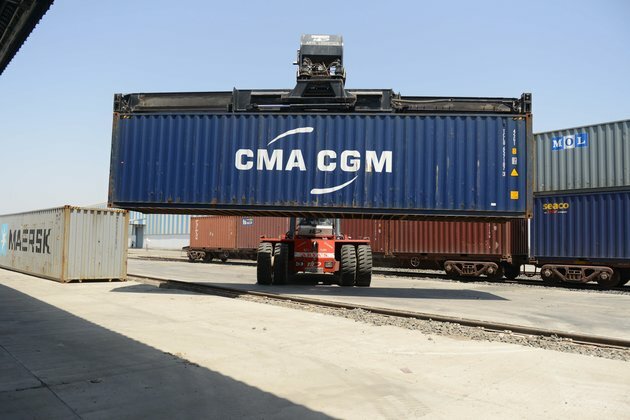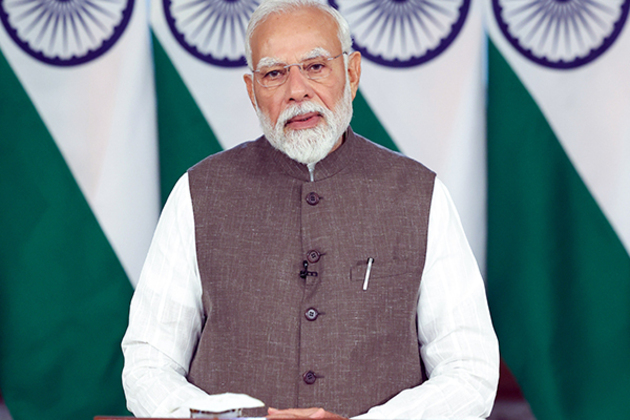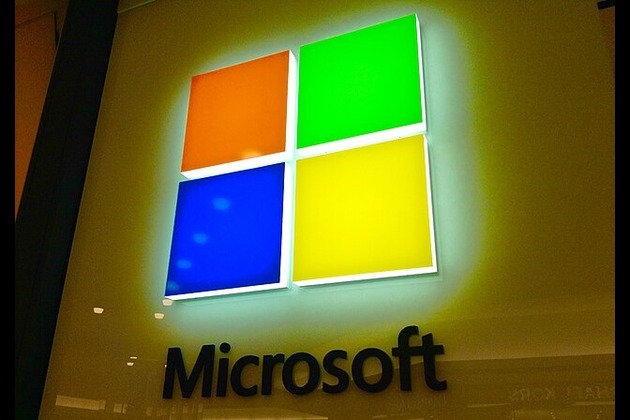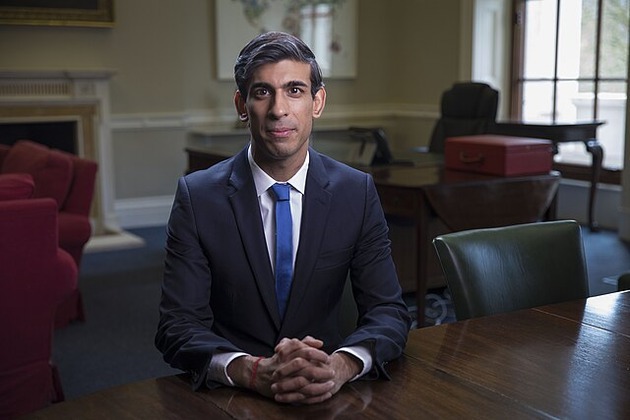India's Pullout Deals Setback to Asia-Pacific Nations' Trade Talks
Voice of America
09 Nov 2019, 03:35 GMT+10

Officials in more than a dozen Asian and Pacific nations are struggling to move forward with a major regional trade pact, days after India announced that it was not willing to sign on.
The news threw the future of the Regional Comprehensive Economic Partnership, a deal seven years in the making and now involving 15 nations, into serious doubt, even as negotiators insisted that the agreement was still viable.
The pact, known as RCEP, would include the 10 members of the Association of Southeast Asian Nations other than India (Malaysia, Brunei, Cambodia, Vietnam, Indonesia, Singapore, Laos, Thailand, Philippines and Myanmar) as well as China, Japan, South Korea, Australia and New Zealand.
As trade pacts go, RCEP can be seen as very wide, though perhaps not particularly deep. With Indian participation, it would have covered countries with more than half of the world's population and about one-third of its economic output. However, even with the final details of the proposed agreement still under discussion, it is clear that compared with other major free trade deals, RCEP is far less ambitious.
"On paper, it's bigger but generally regarded as a much less ambitious agreement than most," said William Reinsch, a senior adviser and holder of the Scholl Chair in International Business at the Center for Strategic and International Studies in Washington. "It's not going to be full free trade. There's going to be lots of exceptions. Lots of things are not going to be covered."
The deal also says nothing about workers' rights or liberalizing economic policies in countries - like China - that give domestic firms regulatory forbearance and financial assistance that most developed Western economies believe translate into unfair competitive advantages.
When Indian Prime Minister Narendra Modi announced Monday that his country would not be a party to the deal, he cited his reluctance to expose his domestic businesses to cheap Chinese imports and the lack of specific provisions in the draft agreement on trade in services. Modi's decision came after years of negotiations in which India was frequently the lone holdout on elements of the agreement supported by the remaining participants.
Complications
India's decision to step away from the deal complicates matters in multiple ways.
From a purely practical standpoint, India is one of the largest economies in the region and has historically been very reluctant to allow foreign competitors to sell products in its domestic markets. The lure of access to India's 1.4 billion consumers was a major driver of interest in the deal, making it attractive to countries like Japan, Australia, Singapore, New Zealand, Brunei, Malaysia and Vietnam, which already have free trade agreements with each other through participation in the Comprehensive and Progressive Agreement for Trans-Pacific Partnership (CPTPP).
However, while he called India's decision "disappointing" and said that the "door remains firmly open" to its future participation in the agreement, Australian Trade, Tourism and Investment Minister Simon Birmingham insisted in an interview with Bloomberg this week that RCEP "still remains very commercially viable and beneficial."
From a political standpoint, India's exit from the treaty makes China, already the largest economy involved in the deal by a large margin, even more of a dominant player in the negotiations.
"There's concern that in the absence of India, it's going to be perceived as too much of a Chinese agreement," said Reinsch. "It will basically be China and a whole bunch of smaller economies. People would like to have India in the mix as a sort of counterweight."
U.S. perspective
Meanwhile, free trade advocates in the U.S. are watching in frustration. Regardless of whether the deal is ultimately successful, the fact that it is China and not the U.S. that is spearheading the push for a regional agreement is seen by many as an abdication of America's global influence.
The current debate about RCEP comes less than three years after President Donald Trump began his first term with the announcement that the U.S. would be pulling out of the Trans-Pacific Partnership, the expansive trade deal brokered by the U.S., which ultimately became the CPTPP.
"From a U.S. perspective, it's just tremendously disappointing to be looking at it from the outside as CPTPP and now RCEP get concluded," said Jake Colvin, vice president for global trade and innovation at the National Foreign Trade Council in Washington. "From a U.S. business perspective, it's frustrating not to be part of these kinds of regional deals, which are as much political as economic."
Colvin added, "The reality is that TPP was always as much of a political as an economic agreement for the United States. And I think the same holds true for RCEP. This is great optics for China. They get to tout their contribution to supporting an open-rules-based trading system, and then still get to keep some of their discriminatory practices that freeze out many of the companies that we represent."
 Share
Share
 Tweet
Tweet
 Share
Share
 Flip
Flip
 Email
Email
Watch latest videos
Subscribe and Follow
Get a daily dose of Japan Herald news through our daily email, its complimentary and keeps you fully up to date with world and business news as well.
News RELEASES
Publish news of your business, community or sports group, personnel appointments, major event and more by submitting a news release to Japan Herald.
More InformationAsia Pacific
SectionBeijing hits back at EU with medical device import curbs
HONG KONG: China has fired back at the European Union in an escalating trade dispute by imposing new restrictions on medical device...
Auto OEMs to witness pressure in Q1 FY26E amid input cost surge and operational headwinds: Report
New Delhi [India], July 12 (ANI): India's auto original equipment manufacturers (OEMs) are likely to witness margin pressures in Q1FY26E,...
CHINA-TIANJIN-AIRBUS-40 YEARS-PARTNERSHIP (CN)
(250712) -- TIANJIN, July 12, 2025 (Xinhua) -- Airbus conducts a sustainable aviation fuel (SAF) delivery flight in Tianjin, north...
Interview: Philippines burdened by South China Sea arbitration, says expert
The arbitration has in fact become an anchor around the Filipino people's neck, weighing the nation down economically, said Herman...
Floods near Nepal-China border disrupt Kailash Mansarovar pilgrimage; TAAN urges diplomatic action
Kathmandu [Nepal], July 12 (ANI): The Trekking Agencies Association of Nepal (TAAN), an umbrella organisation of mountain tourism entrepreneurs,...
"Every Indian is elated with this recognition": PM Modi as 'Maratha Military Landscapes' gets UNESCO tag
New Delhi [India], July 12 (ANI): Prime Minister Narendra Modi on Saturday stated that every India is elated with this recognition...
Business
SectionAI saves $500 million for Microsoft as layoffs reshape strategy
REDMOND, Washington: Artificial intelligence is transforming Microsoft's bottom line. The company saved over US$500 million last year...
FTC’s rule to ease subscription cancellations struck down by court
WASHINGTON, D.C.: A federal rule designed to make it easier for Americans to cancel subscriptions has been blocked by a U.S. appeals...
Musk’s X loses CEO Linda Yaccarino amid AI backlash, ad woes
BASTROP, Texas: In a surprising turn at Elon Musk's X platform, CEO Linda Yaccarino announced she is stepping down, just months after...
Ex-UK PM Sunak takes advisory role at Goldman Sachs
NEW YORK CITY, New York: Former British prime minister Rishi Sunak will return to Goldman Sachs in an advisory role, the Wall Street...
Gold ETF inflows hit 5-year high as tariffs drive safe-haven bets
LONDON, U.K.: Physically backed gold exchange-traded funds recorded their most significant semi-annual inflow since the first half...
PwC: Copper shortages may disrupt 32 percent of chip output by 2035
AMSTERDAM, Netherlands: Some 32 percent of global semiconductor production could face climate change-related copper supply disruptions...













